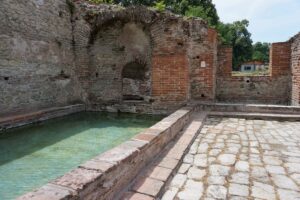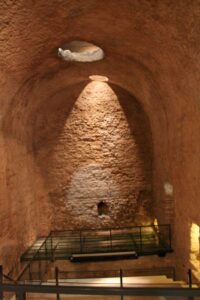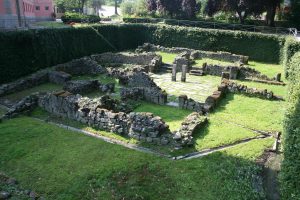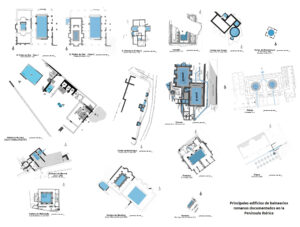
THERMASCAPE. One goal: To understand the role of mineral-medicinal waters in the territory since ancient times
(THERMASCAPE. Un objetivo: comprender el papel de las aguas mineromedicinales en el territorio desde la antigüedad)
With this project, we aim to open a disruptive line and improve on traditional approaches to the study of Roman spas in the Roman Empire, particularly in the Iberian Peninsula.
This proposal is characterized by a new way of conceiving the role of mineral-medicinal waters in relation to the territory in which they are found and from a diachronic perspective that will allow us to understand their impact from Roman times onwards.
To this end, following the footsteps of research on ancient thermalism generated in recent decades, we believe it is necessary to reformulate research on ancient thermalism, based on existing interdisciplinary data, using new interoperable and exportable study models and results that can be updated, accurate and quantifiable results, applying new research perspectives and working models that allow us to understand in detail the origin of thermal practice and the role that these springs played in shaping the territory since Roman times.
To this end, the THERMASCAPE project, made up of researchers and specialists in thermalism from a wide range of fields (mainly archaeology, medical hydrology, architecture, hydrogeology, engineering, ancient history and geography), is working on a geospatial database that will be freely accessible.
If you are interested in this project, we will keep you informed of our progress on this website and through our social channels.
Shall we go to the Waters…?
Keywords: Roman archaeology, ancient architecture, AI, Databases, 3D proposals, Geodata, Roman Empire, International subject.
Proyecto PID2022-138809NB-I00. THERMASCAPE: El paisaje termal en Hispania. El papel de los recursos termales en la Península Ibérica desde época romana (2023-2027).
Project PID2022-138809NB-I00. THERMASCAPE: The thermal landscape in Hispania. The role of thermal resources in the Iberian Peninsula since Roman times (2023-2027).







